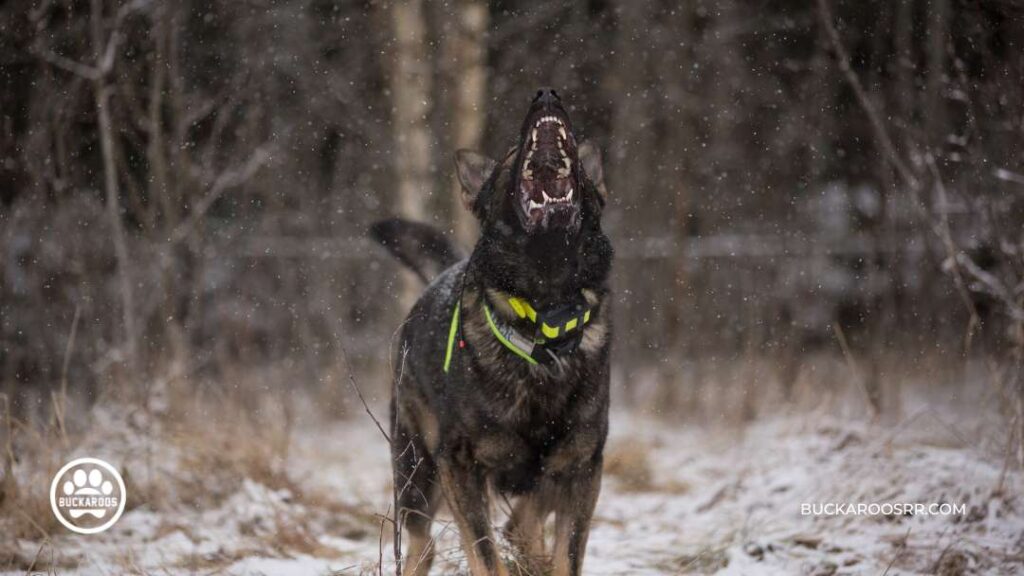Dog Barking behavior has been a prominent dog behavior for ages. It is a way they communicate with their species and humans like us. These verbal cues help them cope during intense situations. Many times barking is looked after as bad behavior that needs to be condemned. But with our five reasons, let’s try to understand the different types of barks and why your dog lets them out!! Understanding dog language.
We have tried to explore every other corner of a dog’s life to come up with these reasons, hope you find what you are looking for. We also included ways to control this type of barking.
Five Types of Barking and Why Does Your Dog Bark?
We have tried to make this easier for you by providing real-life scenarios which you can relate to and apply to your dog as well.

1. Happy Barking
Yes, dogs do bark when they are happy. These verbal cues can be showcased in the form of sharp whines let out every few seconds, accompanied by a waging tail and bright eyes!!
Isn’t that adorable?
Dogs engage in this behavior when they see something familiar or are excited to be somewhere. Your dog is sure to invite you with the same gesture after a long day at work!!
With this, they might also tap their feet on the ground or go zombies to let out the excitement!!
Another reason why dogs engage in this behavior is to seek attention. If you wish to reduce this adorable behavior somehow, you can always place a distraction in-between to shift your dog’s attention.

2. Hungry Barking behavior
When your dog needs food, they engage in hungry barking. It happens when you miss their food schedule or are out on a trip with them. You might forget to feed them. Hungry barking is a reminder call your dog gives.
But how do you identify hungry barking?
It’s a bark that stretches for a long time with short pauses in between. In this situation, the dog would be in a completely relaxed state and their tail might wag or be stiff.
Your dog might show the same behavior if he wants to pass out. The visual cues and the situation can help you understand what your dog needs.
Your dog might sometimes bark at you for treats, but you should never reward him after barking. This will instill negative behavior. Instead, you can turn your back on him until he stops barking and then give him a treat. This would create positive behavior.

3. Bored dog Barking behavior
Even though dogs are known to entertain others, they do face boredom and can bark it out. Your dog needs enough mental and physical stimulation to get rid of boredom. If they aren’t stimulated enough, they might end up being lazy.
These boredom barks are quite cute to hear. It feels as if your dog wants to talk to you. They give out sounds like ruff-woof to convey their boredom. Their body language is again relaxed with an erect tail.
When your dog is bored, it might let it out by destroying things like your garden, pillows, covers, mattresses, etc. So it’s quite important to keep the simulations going.
You can divide their day by including daily walks, treats puzzles, games, chew toys, and dog daycare. If your dog feels bored at home, you can also bring them to Buckaroos where we provide the best life for your dog.

4. Defensive dog Barking behavior
This is when things get serious. This is a more destructive form of barking which everyone is afraid of. Here your dogs are in a defensive position to either protect the house or frighten other dogs.
Dogs get in this position to show they are bigger and more dangerous than the frightening stimulus. This is a high-pitch barking with persistent growls in-between. The dog’s body language is erect with his ears in attention and teeth raised.
To distract your dog from barking you need strength training. This requires professional training sometimes.
When your dog starts defensive barking, a strong sit command can distract their attention for some time. After your dog calms down you can introduce treats to reward the newly learned behavior.

5. Canine Dementia Barking behavior
A common disorder in much older dogs. You can recognize this by observing two symptoms. First, your dog is old. Second, mindless barking without any stimulus.
This type of barking is continuous and can arise at night without the presence of a stimulus and can go away without a respective cause. They might even cry or whine for no apparent reason.
As a dog parent, it’s necessary to stay calm and let these changes happen on their own. Take care of your buddy, and give them love and treats. This will help them reduce their anxiety and avoid barking unnecessarily.

Ways To Stop Your Dog From Barking
Barking is a common dog behavior but excess of it can become a nuisance for guests’ visits, neighbors, children, etc. As dog parents, we must control our dog’s behavior. Following these three steps would surely help you understand and get over this behavior.

First- Identity The Weak Link
As we already discussed above the different dog body languages, barking types, etc with its help we need to understand the different triggers that might be responsible for your pup’s negative response.
A dog can get triggered by anything. It can be the voice of your neighbor, the presence of another dog, the lawn mower, etc. Thus it’s important to understand the cause to take the right action.

Second- Teach a New Behaviour
Once you know what’s causing the barking, teach them a new behavior by using obedience training. Here you reward your dog for every right behavior. Your task includes shifting their attention from the endangering stimulus and rewarding them when they do not bark.
Do not use negative ways to teach your dog a new behavior. Hitting, and shouting will create more fear, thus leading to increased bad behavior. Just ignore them until they stop barking.
Once they learn this retain the behavior by rewarding them for every right behavior.

Third- Give Them What They Want
Now you know how to teach something new and positive to your child. But this change isn’t permanent. To make it permanent we need to make certain changes in their surroundings. If you feel your dog barks when hungry, try to put them on a feeding schedule, which will help them understand and fit to the correct timing for food.
If you think your dog barks at a particular person you can make them friends so they get to know each other.
When your dog isn’t able to adjust to its surroundings, you as their parent need to understand this. Just when you start building a good connection with your pup, he will become more and more comfortable!!
To Conclude
Barking is the only language dog knows. As humans who are blessed to understand other beings, we must know what they mean and teach them healthy coping mechanisms.





